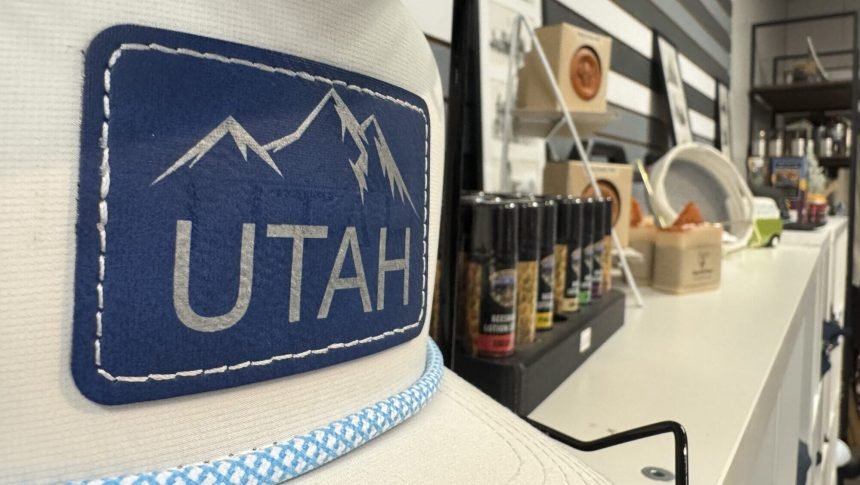SALT LAKE CITY — As Utah businesses continue to navigate the effects of tariffs on their operations, an analyst and a small shop owner reflected Thursday on what holiday shopping season would look like as both retailers and consumers feel the pinch of tighter budgets.
At Uniquely Utah Souvenir Co., 122 S. Main St., owner Martin Norman said he has already been managing supply chain cost increases due to tariffs and absorbing what he can.
“If it’s not a big increase, typically I’ll just take the hit by keeping the product the same price,” Norman said during an interview with KSL TV. “If it’s a big increase — like a dollar or two — I have to raise my prices.”
Uniquely Utah Souvenir Co. owner Martin Norman is pictured on Nov. 20, 2025. (Greg Anderson, KSL TV)
Norman said tourists make up roughly 90% of his clientele, and 80 to 85% of the products he offers come from local companies.
He said, though, just because the items are locally produced doesn’t mean they aren’t impacted by tariffs.
“Some of the suppliers that we go through — they source their product from overseas,” Norman explained. “Even if they build their product locally, some of the components that they put into their product come from overseas, and so those tariffs hit you even though it’s a locally made product.”
Norman said he has, at times, had to change suppliers to keep his prices competitive.
It’s a hard math he and other retailers have had to calculate since tariffs went into effect.
“Some have decided to raise prices and increase their prices,” said Jared Anderson, senior director of global business services at World Trade Center Utah. “Others are cutting costs and unfortunately that means that they’re probably eliminating head count.”
Among other services, WTC Utah has helped Utah companies navigate the challenges posed by tariffs in their international dealings.
“We’re clearly seeing the tariffs are having an impact on Utah companies,” Anderson said. “Most of them are trying to find new sourcing opportunities, bringing their production closer to the U.S. — ‘nearshoring.’”
With the holiday season approaching, Anderson said he believed shoppers would notice differences.
“You’re likely not going to see some of those aggressive, deep discounts that you’ve seen in the past,” Anderson said. “We’re starting to see that consumer products are being affected, just because we’re looking at gift-giving season and people are out there buying.”
Anderson said he did believe, however, that consumers would continue to spend this holiday season even with some higher prices and less impressive sale events.
“Holiday cheer isn’t motivated by tariffs, so Utah families love the holiday season, they love to give gifts, and I think you’re going to see that continue,” Anderson said.
He predicted, if anything, families might purchase one or two less gifts to put under the tree this year.
“Ideally, I’m hoping it won’t have a big impact in my shop,” Norman said.
He said he didn’t believe the tariffs were bad, and that they could be beneficial to the nation in the long run with more money being returned to the U.S. economy.
Norman said he also believed tariffs could level the playing field for locally owned and operated businesses and they might incentivize consumers to buy local.
“It’s allowing us to shop more locally, which we should be doing anyway,” Norman said. “Shop local, keep things local. Don’t go to the big brands that are overseas. Really just take care of your small businesses.”











